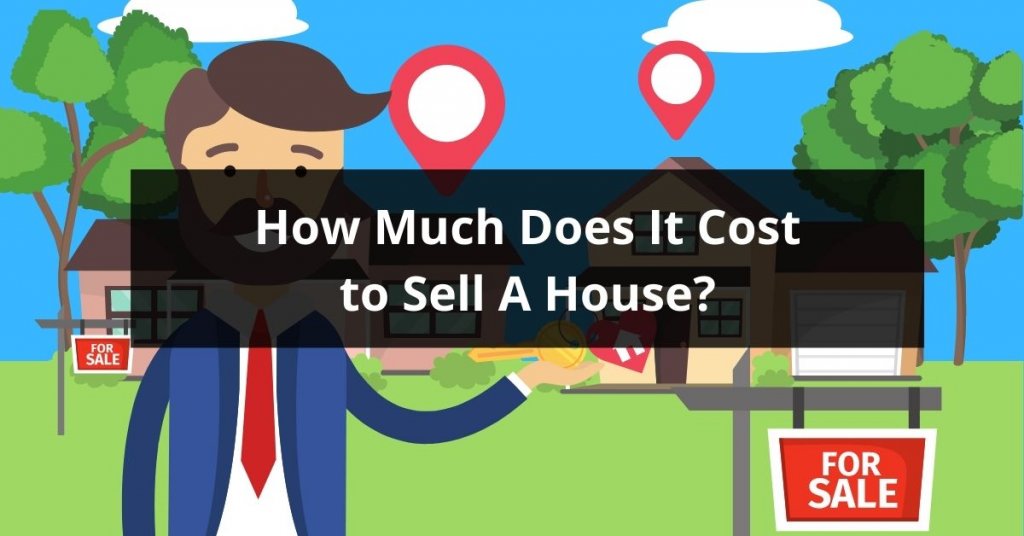It costs roughly 15 percent of the selling price to sell a house. But keep in mind the actual cost of selling a house depends on many factors including the appraisal price, market demand, the repairs or upgrades you make, and real estate agent fees if you use an agent (which we recommend you do).
The total cost to sell your house will also vary based on where you live and the condition of your house at the time of sale. For instance, a seller listing a house in a “sellers market” will likely be able to charge more money making the 15% cost to sell a house shrink. And vice versa. If you list in a “buyers market” you could see the 15% cost to sell a house increase because you have to compete with the other houses in your stratified market.
Another example of how these costs can change is if your house fails parts of the inspection. Failing inspection can lower the total value of the home so you make less, or the buyer could require you to fix them adding an additional cost.
If you’re worried about having to take all the costs and reducing how much you can make on your home, don’t be. Depending on your deal and means of selling (using an agent versus selling on your own), many of the costs can become the buyer’s responsibility. So lets jump in and look at which costs can be yours, both parties or the buyers responsibility.
Costs Sellers Cover:
-
Home Repairs and Upgrades
Replacing your house’s vinyl siding with a faux stone façade, upgrading appliances, fixing scuffed or damaged flooring, adding in smart devices, and fixing water stains are a few examples of repairs and upgrades that can boost your house’s resale value. This helps you turn more profit and is a vital part of figuring out how much it will cost to sell your house.
If you do not want to make these adjustments, but these changes are important to the buyer, the buyer might lower their offer price. This is why it is important to do your research before hand to see if the other houses for sale have these same upgrades or not. If they don’t and you make them, you may have an advantage pr at least be equal so you can have a higher asking price which in turn increases your profits.
-
Pre-sale Home Inspection
A pre-sale home inspection is optional. If your goal is to increase the selling price, a pre-home inspection may help you find some easy-to-fix items so you can make the repairs. A pre-home inspection normally costs between $400 and $500 depending on the size of your home and where you live.
-
Property Taxes
If you receive your property tax bill prior to the sale, you will likely be responsible for paying which for some people can be considered less profit on the house. But don’t worry! If you have paid the full amount of taxes, you may get a rebate at closing, although this isn’t always the case. Getting the rebate will depend on how good of a negotiator you are.
If you receive your property tax bill after the sale you likely won’t have to incur the property tax as a cost to sell your house as the house and property are no longer yours. You can instead pass it on to your agent for transfer to the buyer, the home’s new owner. (If you are selling privately, simply send it to the new owners).
-
Staging Costs
“Staging” a house means you are styling a home to help the buyer visualize what it might look like when they live in the space. The goal with staging is to help the buyer visualize themselves at home. This can sometimes increase the selling price and move the property more quickly. Some real estate agents eat the cost as part of their fee and others will split staging costs with you. Depending on the agreement with your agent, staging could increase the costs to sell your house or keep your costs as expected.
Now that you know the main costs you may need to pay, here are some of the costs the buyer is typically responsible for.
Costs typically covered by a buyer:
-
Title Search
A title search is a cost the buyer incurs because it helps the buyer ensure you have the right to sell the property and the buyer can officially buy the house. There is always a chance that the title search can miss something, but that is why the buyer will likely purchase a title insurance policy.
-
Closing Costs
Closing costs can include a closing fee that is paid to the closing agent, property taxes, a recording fee for the deed, a transfer tax, and any costs that apply to the house’s original mortgage.
Many closing costs can be covered by the buyer if you’re in a sellers market, but in many circumstances the costs will be split between you and the buyer.
The costs to sell a house are roughly 15% of the selling price. But as you can see there are many factors that can raise or lower the actual costs. If you enjoyed this post please share it on social media or join our newsletter and get more real estate investing tips, marketing ideas, and how-to guides delivered to your inbox.

